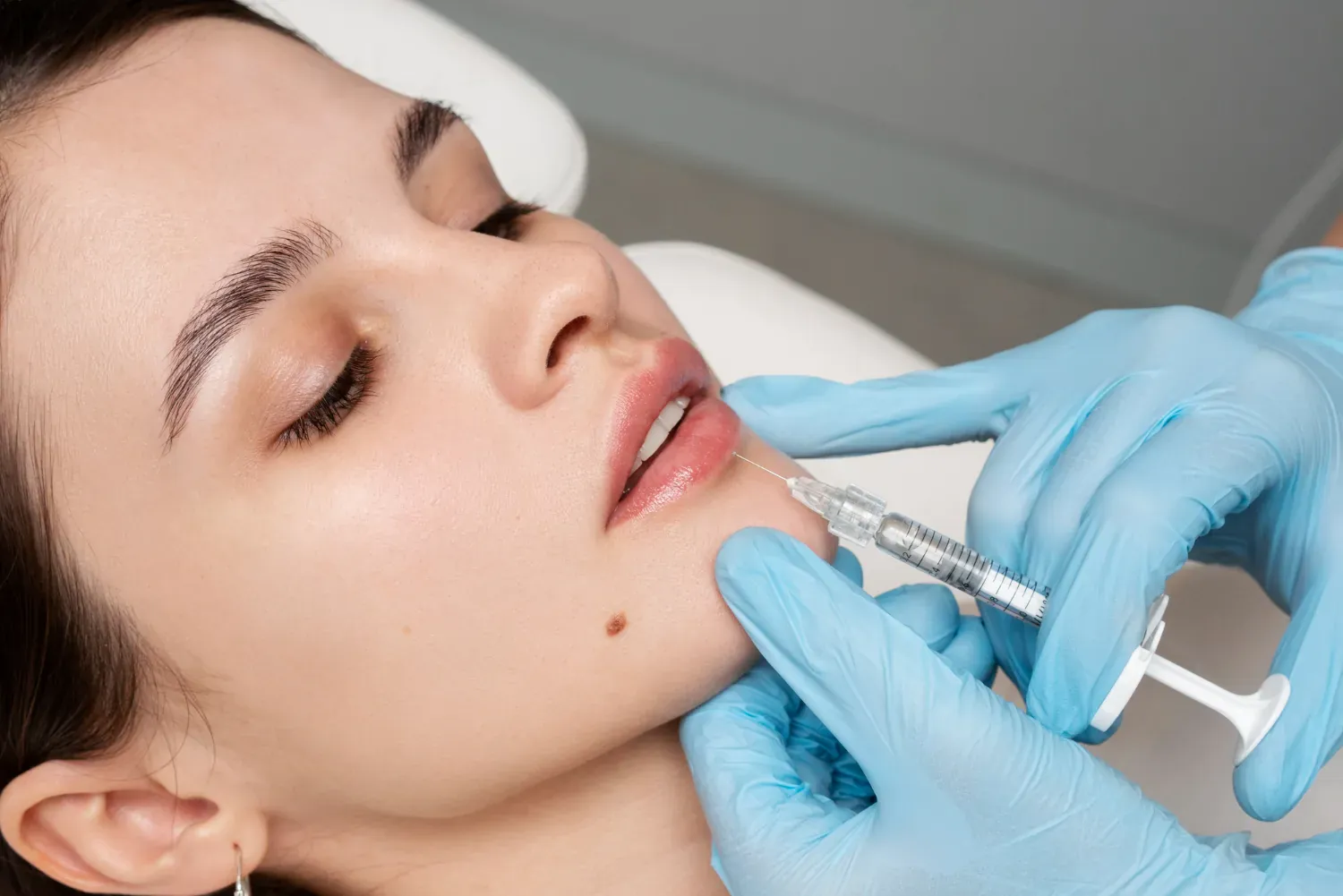
Lip Fillers
Achieve Beautifully Shaped, Hydrated, and Naturally Fuller Lips
Duration
30-45 Mins
Sessions
1 (Top-ups needed)
Price From
£150
Downtime
Minimal (Swelling)
Key Benefits
- Adds natural-looking volume
- Defines lip shape and border
- Improves lip symmetry
- Hydrates and smooths lips
- Boosts confidence
- Immediate results (post-swelling)
Common Target Areas
Enhancing Your Lips, Naturally
Lip fillers are a popular treatment designed to enhance the natural shape, volume, and hydration of the lips using Hyaluronic Acid (HA) dermal fillers. Whether you desire subtly fuller lips, improved definition of the lip border (vermillion border), correction of asymmetry, or simply better hydration, Dr. Hans at PRP London Clinic can achieve beautiful, natural-looking results.
Using premium fillers like Juvederm®, Restylane®, and Revolax®, Dr. Hans tailors the treatment to your individual lip anatomy and aesthetic goals, ensuring results that complement your overall facial features.
Benefits of Lip Fillers
- Adds Volume: Creates fuller, plumper lips in a natural way.
- Defines Shape: Enhances the lip borders and Cupid's bow for better definition.
- Improves Symmetry: Corrects natural asymmetry between the upper and lower lips or left and right sides.
- Hydrates Lips: HA fillers attract water, providing deep hydration for smoother lips.
- Reduces Fine Lines: Can soften vertical 'smoker's lines' around the mouth when injected carefully.
- Boosts Confidence: Achieving your desired lip aesthetic can significantly enhance self-esteem.
The Lip Filler Procedure
Your lip enhancement journey starts with a consultation with Dr. Hans to discuss your desired look and assess your lips. Strong topical numbing cream is applied for comfort. Dr. Hans then uses a fine needle or cannula to precisely inject the chosen HA filler into specific areas of the lips (body, border, Cupid's bow) to achieve the desired volume and shape. The amount of filler used (typically 0.5ml to 1ml) depends on your goals and natural lip size. The procedure takes about 30-45 minutes. Swelling is common immediately after and for a few days.
Results and Longevity
Increased volume and shape are visible immediately, but initial swelling is expected. The true result becomes apparent once swelling fully subsides, usually within 5-14 days. Lip fillers typically last 6-12 months, as the lips are a mobile area. Longevity depends on the filler used and individual metabolism.
Lip Filler Pricing
Lip filler cost depends on the brand (Revolax or Juvederm/Restylane) and the volume (0.5ml, 1ml, etc.) required. Dr. Hans will recommend the appropriate amount during your consultation. See the price table below.
Safety Information
Lip fillers are safe when performed by a qualified medical injector like Dr. Hans. Common side effects include temporary swelling, bruising, tenderness, and lumpiness, which resolve. Serious complications are rare but minimized with proper technique and anatomical knowledge.
Achieve Your Perfect Pout
Enhance your lips naturally and beautifully. Book a consultation with Dr. Hans at PRP London Clinic to discuss lip fillers tailored to you.
Myths vs Facts
Lip fillers always look fake or like a 'trout pout'.
Unnatural results come from poor technique or excessive filler. Dr. Hans focuses on enhancing your natural lip shape proportionately.
Lip fillers are extremely painful.
Strong topical numbing cream and fillers containing lidocaine make the procedure comfortable. You'll feel pressure and small pricks, but typically not intense pain.
You have to get 1ml of filler every time.
No, treatment is tailored. 0.5ml is great for subtle results or top-ups. Dr. Hans advises on the right amount for your desired look.
Lip fillers stretch your lips out permanently.
HA fillers are temporary and gradually dissolve. They do not permanently stretch the lips.
Lip Fillers Cost
| Treatment | Price |
|---|---|
| 0.7 ml Subtle enhancement or top-up. | £250per treatment |
| 1 ml Standard volume for noticeable results. | £300per treatment |
Prices are indicative. Please book a consultation for a personalised quote.
Frequently Asked Questions
Your Expert
Dr. Hansel Misquitta
Aesthetic Doctor
MBBS, MSc (UCL)
Dr. Hans specialises in creating natural, balanced lip enhancements using premium dermal fillers and tailored injection techniques at PRP London Clinic.
View Full ProfileQuick Links
Ready to Get Started?
Book your consultation today and take the first step towards your transformation.
What Our Patients Are Saying
Hear from our satisfied patients about their experience with at our clinics.